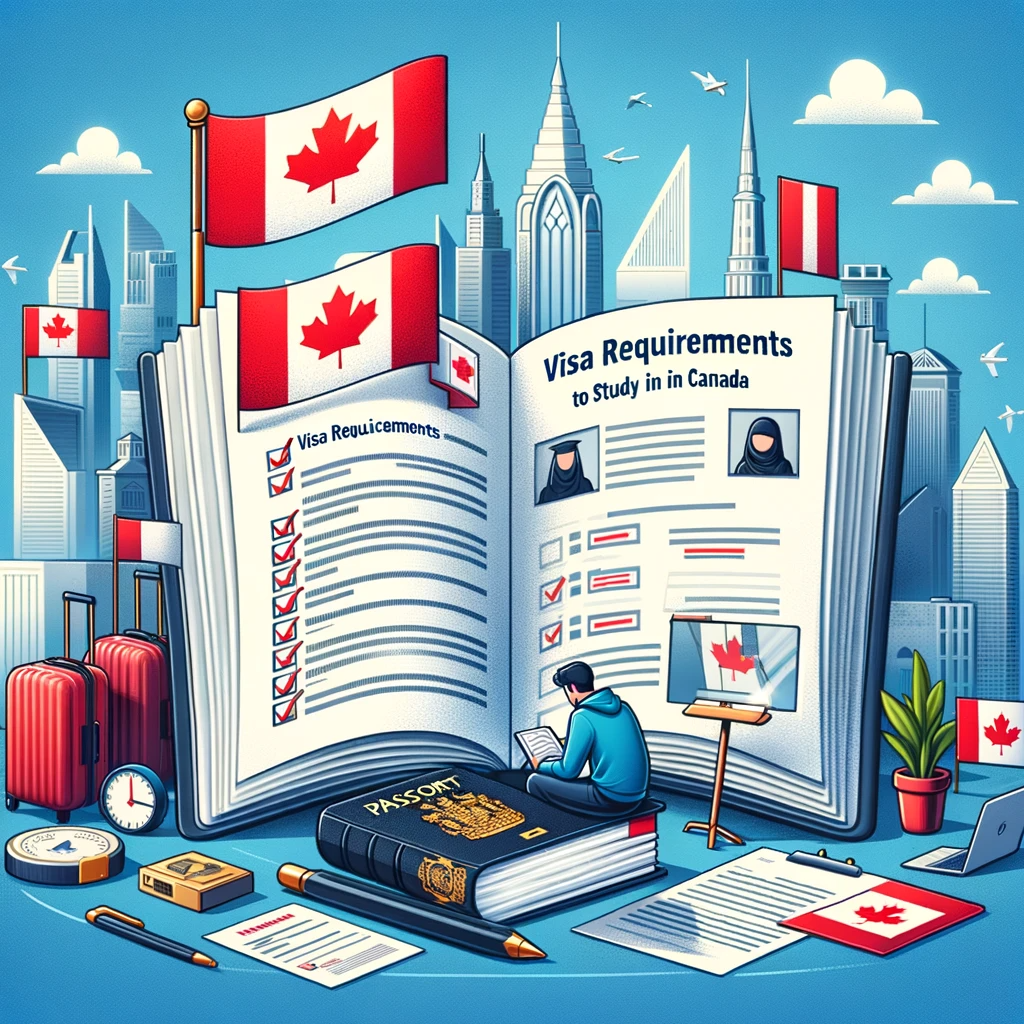For UAE students planning to study in Canada, understanding the visa requirements is a critical step in the preparation process. Here’s a detailed guide on what you need to know and prepare for obtaining a Canadian study permit:

1. Acceptance from a Designated Learning Institution (DLI)
- Your journey starts with securing admission from a Canadian university, college, or other educational institution that are recognized as DLI. The acceptance letter provided by the DLI is crucial for your study permit application.
2. Applying for a Study Permit
- With your acceptance letter in hand, you can apply for a Canadian study permit. This is the document that legally allows you to study in Canada as an international student. Along with the study permit, you may also need a visitor visa or an Electronic Travel Authorization (eTA) to enter Canada.
3. Valid Passport
- Ensure your UAE passport is valid for the duration of your stay in Canada. It’s recommended to have a passport validity that extends beyond your intended period of study to avoid complications.
4. Proof of Financial Support
- You must demonstrate that you have sufficient funds to support your tuition fees, living expenses, and return transportation. This could be shown through:
- Bank statements proving you have enough funds.
- Proof of a Canadian bank account in your name if you’ve transferred money to Canada.
- A Guaranteed Investment Certificate (GIC) from a Canadian bank.
- Proof of payment of tuition and housing fees.
- A letter from a person or school giving you money.
- Proof of funding from within Canada if you have a scholarship or are in a Canadian-funded educational program.
5. Letter of Explanation
- This letter should explain why you want to study in Canada and reassure the visa officer that you understand your responsibilities as a student and will leave Canada at the end of your studies.
6. Immigration Medical Examination (IME)
- Students from the UAE may be required to undergo a medical exam. This examination must be performed by a panel physician approved by the Canadian government.
7. English Language Proficiency
- Depending on your chosen program, you might need to take an English proficiency test like IELTS or TOEFL. The required scores vary by institution and program.
8. Police Clearance Certificate
- A police clearance certificate may be required to prove that you have no criminal record. This is part of ensuring the safety and security of the academic environment in Canada.
9. Biometrics Submission
- Most study permit applicants need to give their fingerprints and photo (biometrics) after applying. This can be done at a Visa Application Centre in the UAE.
10. Quebec Acceptance Certificate (CAQ)
- If your chosen institution is in Quebec, you’ll need a CAQ issued by the Quebec government, in addition to the study permit.
11. Application Fees
- Be prepared to pay the application fee for the study permit. This fee is not refundable, even if your application is not accepted.
12. Processing Time
- Consider the processing time for the study permit. It’s advisable to apply as soon as possible after receiving your acceptance letter.
Post-Graduation Work Opportunities
After completing your studies in Canada, you may be eligible for the Post-Graduation Work Permit Program (PGWPP). This allows graduates to gain valuable work experience in Canada.
Staying Informed
Visa policies and requirements can change, so it’s important to stay updated with the latest information from Immigration, Refugees, and Citizenship Canada (IRCC) or consult with an immigration expert.
Preparing for your educational journey in Canada involves careful planning and attention to detail. By meeting these requirements, you are setting the stage for a successful and enriching academic experience in Canada. Remember, this is not just an educational journey but an opportunity to grow personally and professionally, opening doors to a world of opportunities.




